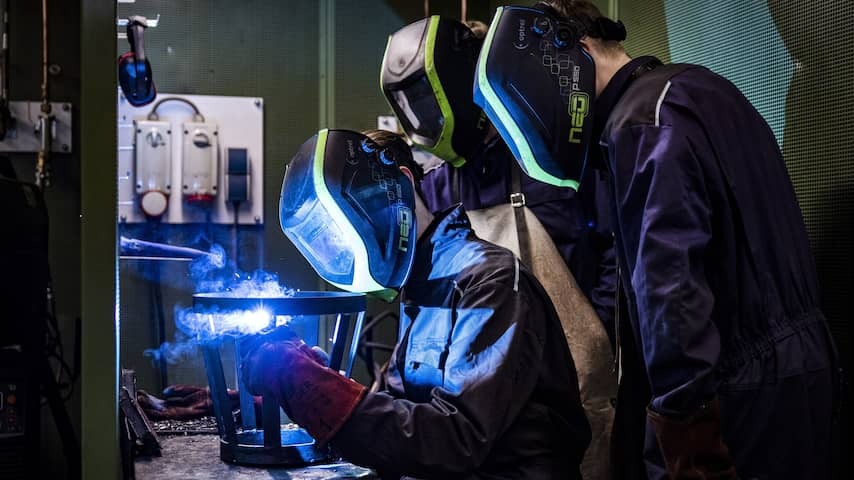
Those working in technology have their pick of jobs. In other fields, too, there are “many opportunities for potential job changers,” notes staffing agency Randstad. But confidence in the labor market continues to decline.
The labor shortage slightly decreased in April, May, and June, Randstad reports in a commentary on its quarterly figures. Shortage means that there are many vacancies and few job seekers. This is favorable for those who want a job: they have more options. The number of vacancies has slightly decreased compared to the second quarter of 2024.
But the shortage remains and that offers opportunities for those seeking other work. Illustrative is how it goes with production work. This includes, for example, welders and sheet metal workers, for whom there are many vacancies. The situation there is therefore very tight. But for example, for assembly workers, the situation is less favorable.
Thus, within most fields there are jobs where work can be found and jobs with fewer opportunities. This makes a switch within one’s own field possible. “Generally, it means that job seekers have more to choose from,” says Randstad’s labor market analyst Bart van Krimpen.
In technology there is by far the most shortage, Randstad notes. There is a lot of demand for people due to developments such as the energy transition. Transport and logistics and construction are also facing a lot of shortage.
Also in broader fields many opportunities
Even in fields where there is much less shortage, people can strike. For example, in financial services. There are more vacancies for controllers than for financial employees. “The most important message is that there are many opportunities for potential job changers in broader fields, because there is shortage everywhere,” says Van Krimpen.
Despite the shortage, confidence in the economy and the labor market is declining, Randstad notes based on its own research. Higher educated people are generally more positive about their opportunities than lower educated people.
The career phase is also important. People at the beginning or the end of their career are less optimistic than people in the middle of their career.
Globally, there is much uncertainty in the labor market, warns Randstad CEO Sander van ‘t Noordende. According to him, it is “the new normal.” “Everyone is still very cautious about hiring staff and investing, but that will probably remain so for a while.”
The Dutch CEO Jeroen Tiel asks the cabinet for clarity. “The labor market is the foundation under prosperity and the foundation is under pressure,” he says. Staff shortages are said to be one of the reasons why a large number of companies are considering leaving the Netherlands. “We need to look beyond one cabinet period. The fall of the cabinet does not help.”